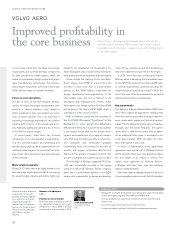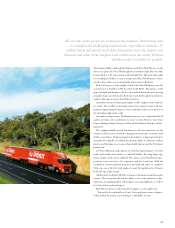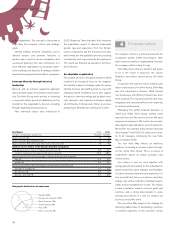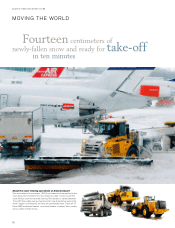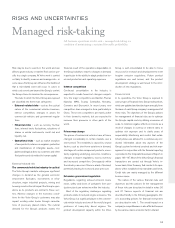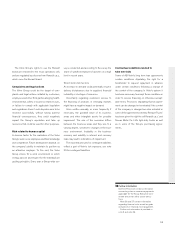Volvo 2010 Annual Report Download - page 51
Download and view the complete annual report
Please find page 51 of the 2010 Volvo annual report below. You can navigate through the pages in the report by either clicking on the pages listed below, or by using the keyword search tool below to find specific information within the annual report.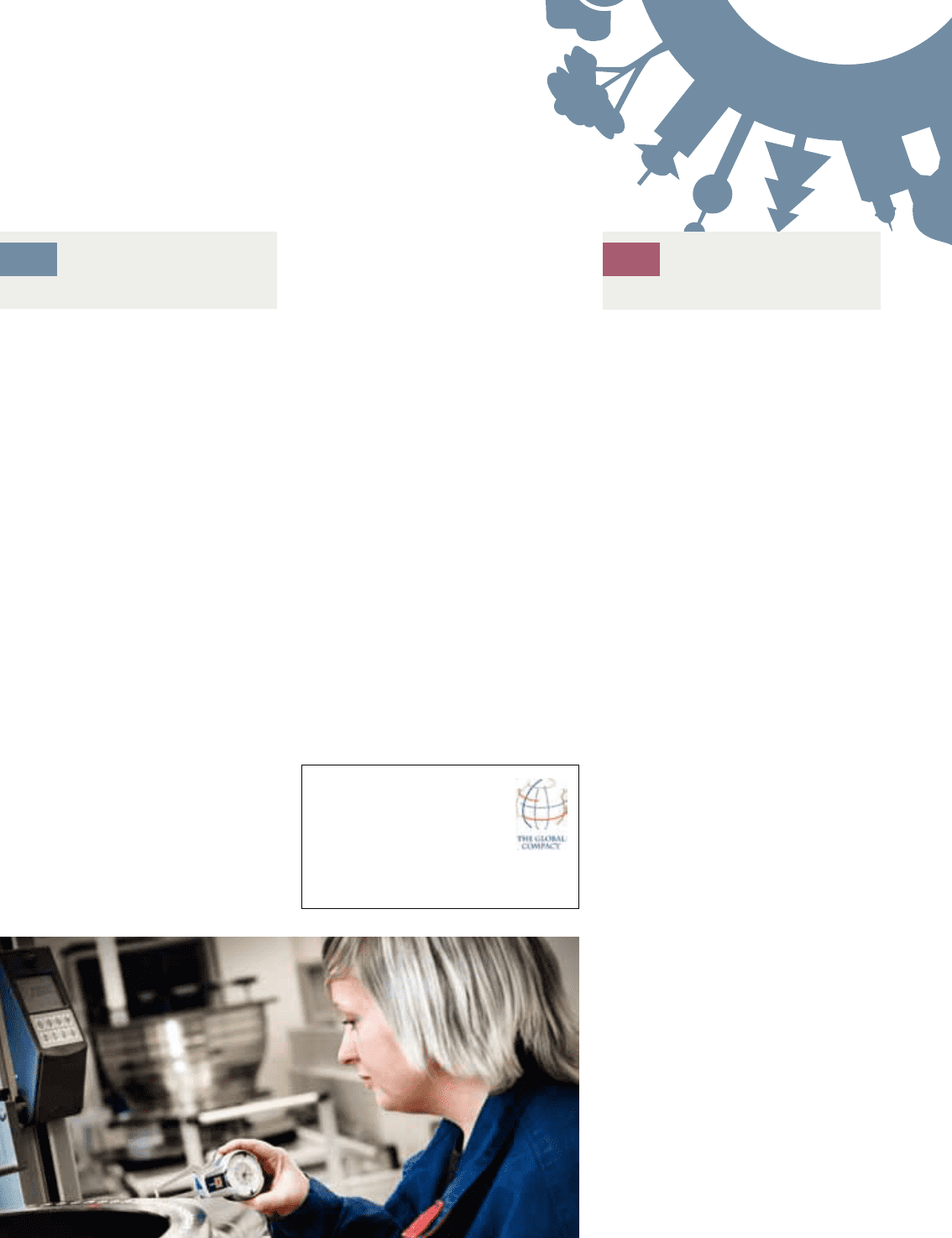
Responsible
sourcing
2
It is becoming increasingly important for the
Group’s stakeholders that the Volvo Group con-
ducts responsible business operations. In dialog
with investors, representatives of affiliated organ-
izations, financiers, customers, employees, etc.,
expectations of Volvo are expressed. Several
requested that the Group must assume responsi-
bility not only for its own operations but also for
issues pertaining to suppliers’ efforts concerning
social, environmental and business ethics. The
Volvo Group endeavors to assume responsibility
by placing demands on its suppliers.
The Volvo Group’s CSR program (Corporate
Social Responsibility) for suppliers aims at
de veloping working conditions and environmen-
tal performance with suppliers that do not already
comply with the Group’s demands, by monitoring,
communicating and training them. Since 1996,
Volvo has placed demands on suppliers’ environ-
mental performance and in 2006, social and
business ethics requirements were introduced. In
2008, the Volvo Group introduced a paragraph in
agreements with new suppliers, which pledges
them to comply with the policies in the Group’s
Code of Conduct. In October 2009, the new
Groupwide CSR program for suppliers was
launched. This means that there is now a joint
process for the evaluation of potential suppliers,
as well as to monitor current suppliers. During
2010, Volvo worked on evaluating the processes’
efficiency and this will be used as the basis for
the way in which the CSR program will develop in
the future.
Approximately 35,000 companies deliver
products and services to the Volvo Group. Of
these, about 6,000 deliver direct material, i.e.
material that is used in the products. Currently,
the control group for responsible purchasing is
focusing on existing suppliers in countries that
have challenges in terms of non-compliance with
legislation within work environment, human rights
and business ethics.
We monitor suppliers’ CSR performance by
evaluation. During the 15 months of the program,
approximately 1,500 suppliers of direct material
were audited and of these, 59% complied with
the requirements. The absolutely most common
reason for non-compliance with the requirements
is that the suppliers did not pass on the require-
ments of the Volvo Group to their own suppliers.
The Global Compact
The Volvo Group supports the UN’s
Global Compact, which was designed to
promote responsible business enterprise
worldwide, and commits itself to imple-
menting and integrating ten principles regarding
human rights, working conditions, business ethics
and the environment in its operations.
High-performing
organization
3
A crucial factor for the implementation of the
Group’s strategy is the contribution from employ-
ees, their expertise and commitment. To secure
and develop strategic expertise and resources in
the long-term is fundamental in order to maintain
an efficient and adaptable organization.
Employee engagement
A positive and challenging work environment is a
prerequisite for high-performing and committed
employees. To create the conditions for this, the
Group focuses on a number of different areas, for
example competency and leadership develop-
ment, work environment and preventive health
care.
The Group’s employees are annually requested
to respond to the Volvo Group Attitude Survey
(VGAS), which will focus on employee engage-
ment starting in 2011. The response frequency
for the most recent survey was 94%. The
responses from the survey are discussed in
work groups and result in activity plans. VGAS
also facilitates comparisons with other global
organizations.
Secure strategic competence
The Volvo Group works proactively with three-
year rolling competency plans, where strategic
competency needs are identified, gaps analyzed
and action plans established. This is followed up
in the annually recurring processes, President’s
review and Talent Review, where succession
planning is also secured.
To prepare leaders of today and the future for
upcoming assignments, work is in progress to
develop a strategy for leader development,
including training programs, tools and methods,
for leaders at all levels within the organization,
according to the Group’s “Leadership Pipeline”
concept. This is a structured method that is
based on global research and that different com-
petencies are required at various decision levels
47



